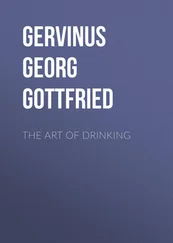“O.K.,” the man sighed, gathering patience. “Are you trying to find a job here or something?”
Yes. That was it. She was looking for a job. She obviously would have to start looking for a job. “Yes, I am. Do you have one?”
“Doll, I got two jobs, but they’re mine. How old are you?”
Tia told him she was fourteen.
“You like a runaway or something?”
“More like a run-a-to,” she said, proud of her wit, but the hotel clerk didn’t even break a laugh. She called the places he told her to call: the YMCA said they didn’t have rooms, just a swimming pool; the shelter told her to come on down, but she thought anyone so willing to take her would be more than willing to ship her away. Finally, she’d booked a room with the Atlanta Dream Youth Hostel for fifteen dollars until their desk clerk told her to bring two forms of ID.
“I don’t have an ID.”
“Well, we can’t give you a room. You need two forms of identification.” Tia wanted to know why, and the clerk told her, “To prove that you are who you say you are.”
“But I told you. I’m Tia Townsend.”
“But we need pictures. Like a driver’s license. Or a passport. We need picture identification.”
“Why do you need a picture?” Tia asked. “You’ll see me when I get there.”
BESIDES, the youth hostel was in Decatur, too far away to conduct a search for her mother. By nightfall, she had walked around most of downtown Atlanta and ridden five MARTA buses. She plopped down in a hard McDonald’s chair to rest before ordering food. It had rained during the day, and though she’d folded newspapers into a tent over her head, she was soaked. She’d slipped in mud taking the shortcut over the small hill on her way into the McDonald’s, and she was too tired to go to the restroom to change. She knew her hair was a mess, and when she reached for her comb, remembered that she’d given it away to a homeless man. “But I’m homeless, too,” she’d protested. The man argued that he was professionally homeless.
Only the day before, her aunt Roberta forced her to pray for two hours straight after they’d come home from church, and most of her half hour of silent prayer included thinking of a way to get to Atlanta. Now that she was in Atlanta, she prayed, her head bowed over the table’s yellow Formica.
Then she felt someone staring at her. When she lifted her head, she saw that the man doing the staring wore one of those nylon running suits that swished with every movement. She tried to stare back, hoping he’d realize his rudeness, but his gaze was unflagging. He gurgled up the last bit of drink with his straw, then grinned as though he were proud of this accomplishment, and she should be too.
“Rough day?”
Tia nodded.
“Well, keep your pretty self smiling.” He got up and tossed his cup in the trash. He spoke a few words to the bored cashier, then swished out the door.
When Tia finally summoned the energy to order and pay for her food, the cashier waved her hand.
“It’s free,” the cashier said.
“Thank you,” Tia said. “Thank you so much.”
“I ain’t do nothing. He paid for it.” The cashier girl pushed the tray of food toward Tia as though the meal had offended her in some way.
At first Tia thought “He” meant God. For people at church, “He” always meant God. He touched me, He spoke to me, He healed me . But people in the World, Tia knew, never used “He” to refer to God.
“‘He’ who?”
The girl waved a lazy hand toward the door. “Him who just left. Dezi. It’s on him.”
The man who’d spoken to her, who’d said she was pretty. The last time anyone had called her pretty was when she was five years old. Her mother lay next to her on a stained, sheetless mattress and said, “You so pretty.” Her eyes were glazed, their whites not white at all but the color of old piano keys. “You so pretty,” she’d said, patting Tia’s face harder than she must have intended.
TAVERNS AND bars lined Virginia Avenue, their interiors leaking a dim tungsten glow. Tia passed restaurants where waiters and waitresses zipped around the linened tables like dragonflies through a maze of lily pads. An Oriental grocery advertised itself in both English and Chinese, and Tia stood transfixed at the complex darning of saber-shaped strokes. The large window displayed an oversized bird of some sort, hanging by its feet, its corpse glossed molasses-black down to its headless neck. Tia walked down the sidewalk, against the northward flow of pedestrian traffic. She found a pay phone and dialed the R. Dunlovey that had previously been busy. A young boy answered the phone.
“Hello!” the voice shouted, loud and confident, as if this were one of the few words he knew.
“Hello,” Tia said. “May I speak to your mother?”
After almost a full minute, she heard a sibling argument over a Popsicle ensue in the distance, and just as she was about to hang up, a woman’s amber-toned voice answered. Tia recognized it, but tried to control herself.
“Ma’am. Do you know a Tia Townsend?”
The woman was silent, and as the silence grew Tia envisioned their reunion, hugs, smiles, shopping sprees so that Tia could get normal clothes, a little adorable brother whom Tia would teach to play the clarinet.
“Atiya, Atiya …” the woman said, “I don’t think so.”
Tia turned onto another street, then another, and another, but she did not cry, not even when she saw a squirrel on the sidewalk, dead, clutching the branch that had failed it. She kept walking until she entered a residential section where it looked like bills were paid on time. Then she saw the quiet streets as Marcelle would have, and suddenly she knew what to do. She checked to see which cars were locked. After the first car alarm, she panicked, her clarinet case banging against her side for the four whole blocks she ran.
She began to look for cars with clubs on their steering wheels. These, she figured, would not be locked as often as the ones without, and when she brushed past them, no alarms sounded. The one she opened had plush-looking seats, but it turned out the seats did not matter. If she didn’t want anyone noticing her, she’d have to lie on the floor and cover herself. The floor was matted with what seemed like a week’s worth of old newspapers, and she arranged these over herself in a thin tissuey blanket.
It was Monday, so Tia’s aunt Roberta would be home from church and would have made pork chops. When they asked about her, Marcelle would have played it cool, She talked about going to Atlanta but I never thought she’d do it . At church, Aunt Roberta would have prayed with the Saints for Tia to come home, for Tia to be safe, for God to guide her. They loved her and she loved them, but it was a smothering sort of love: love because you had to, never getting the chance to find out whether you wanted to or not.
Through a rip in the newspaper, she could see out the window. The sky remained a muddy, light-polluted purple-brown, refusing to turn black and starry the way it did in Alabama. The lights from downtown winked at her, the crescent moon like a castaway cuticle, discarded by God.
TIA WAS certain the morning sun would wake her before the owner got into the car to go to work. Instead, the car door slammed, the engine turned over, and the sun streamed through the newsprint as it would stained glass.
The car began moving. Tia wished whoever was driving would hum or turn on the radio so she could stretch without the paper making noise. She felt paralyzed, a vague tingle in her leg. If she could not get her circulation going soon, she feared it would stay limp and immobile forever. Then the person — a white woman — began singing to herself.
Читать дальше












